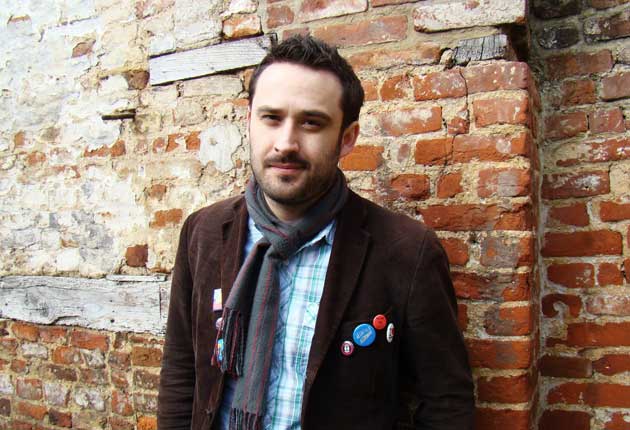How to get a book deal
Tim Clare spent years trying to be published. Now he's written about the secret of his success

If you want to be a footballer, or a heart surgeon, or an astronaut, there are clear prerequisites and cut-off points – before you proceed you must acquire such-and-such a qualification, if you haven't achieved such-and-such by the age of 20 your chances of a career are zero. By stark contrast, becoming a professional author calls for a highly subjective skillset, recognises no age limit, and can even co-exist alongside other jobs. With most other vocations, there comes a stage where you can say: "Well, it was a pretty dream, but it's impossible now," and finally let go, safe in the knowledge that no amount of "hairshirty" exertions would ever be enough.
Most people who put pen to paper and attempt a book are perfectly aware of the horrendous odds they face, but becoming a novelist has little to no start-up costs, and offers theoretically limitless profits. Anybody could be plucked from the doldrums of their shabby, average job and hoisted into a life of status, meaning, and comfort.
Magical thinking thrives in unpredictable environments. Even for industry stalwarts, the dense mesh of variables that governs whether a book sells in barrowloads or slumps into ignominious obscurity makes publishing a baffling business – which, of course, is part of its attraction. To the uninitiated would-be writer, the book industry can seem variously like a glamorous dream factory, an unfeeling monolith honeycombed with toff cabals, and a kind of clapped-out Zeppelin piloted by monkeys that randomly distributes food parcels.
The fact is, there is no one-size-fits-all prescription for getting published. The only general advice possible is to embed yourself as deep as you can in the belly of the beast, then use every means at your disposal to get your work read by the people with their hands on the purse strings. Of course, this policy presumes that you have spent years honing your craft, know your market, and have produced a manuscript that showcases your skills firing on all cylinders. Yes, the occasional purblind idiot may blunder across the minefield unscathed, but most will get blown to smithereens. Think of talent as your insurance policy.
For all the supposed allure of the distant finish line, in my experience, writing a novel is a long, lonely path, lined with signposts pointing in contradictory directions. I spent years working on an elaborate fantasy novel that didn't quite hang together, then lost my job, split up with my girlfriend, moved back in with my parents, and had a nervous breakdown. For the next 18 months, I watched as my best mates started achieving things that, just a couple of years before, were nothing but whimsical fantasies. I played video games, ate breakfast at two in the afternoon, and listened to my recently retired dad shuffling round the house like Marley's Ghost. Eventually, partly at the behest of my therapist, I began to write about what I was going through – the tight knot of jealousy in my stomach, my heart-to-heart chats with my father. Writing about my feelings spurred me into action which in turn gave me more to write about, until soon I'd wrestled some of my darkest demons and decided that I could live without the glory of being "someone who writes stories". At which point I showed what I'd written to an agent, who showed it to a publisher, who said no and then my agent kept on showing it to publishers until one said: "This is very good. I will give you money for it." Simple.
Tenacity and flexibility make a formidable team. Take pleasure in creative failure – it's a sign you're pushing yourself – but learn from it too. I had to bash my head against a brick wall several times before I thought: "Hey, maybe I should change direction." Getting published is about practising until you're really good, then persevering until you're really lucky.
Tim Clare's 'We Can't All Be Astronauts', published by Ebury Press, £10.99
What not to do: A beginner's guide
1. Don't believe you dilute your vision by reading others' work.
2. Don't be afraid to lose faith in your original draft. To edit is not to scorn your infallible muse.
3. Don't submit your work with supporting material. Self-portraits in green crayon do not scream "I am creative".
4. Don't approach editors somewhere they could not reasonably be expecting to field submissions. Catching them off-guard will not get you a better deal.
5. The Writers' Handbook and Writers' and Artists' Yearbook are both produced by publishers. Ignore them at your peril.
Join our commenting forum
Join thought-provoking conversations, follow other Independent readers and see their replies
Comments
Bookmark popover
Removed from bookmarks